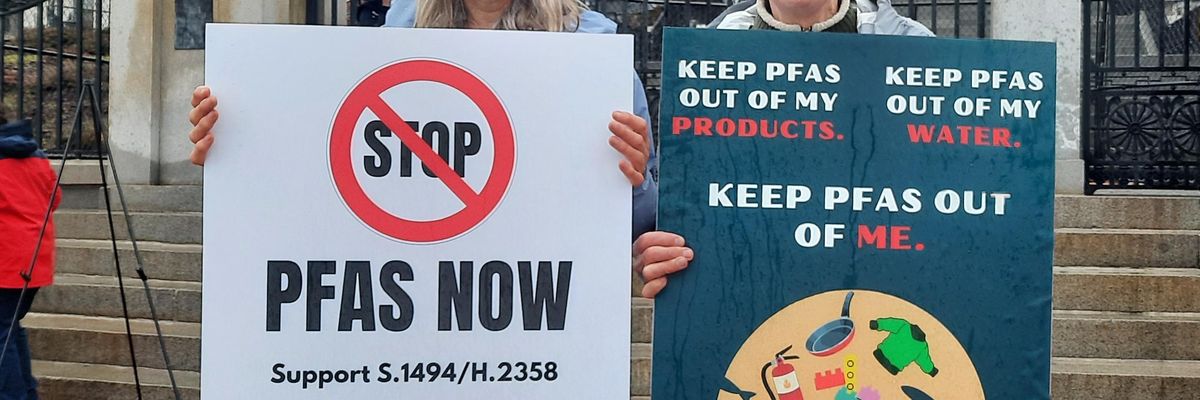As public health experts raise alarm over the prevalence of highly toxic "forever chemicals," as per- and polyfluoroalkyl substances or PFAS are commonly known, one nonprofit investigative journalism outlet warned Saturday that a recent ruling could further tie up the regulatory process for the chemicals and other harmful substances.
"This ruling is likely to impede already excruciatingly slow efforts to regulate the presence of health harming chemicals in products people use in every part of their lives," said Watershed Investigations of a decision handed down earlier this month by the right-wing Fifth Circuit Court of Appeals in New Orleans.
The case is one of several involving Inhance Technologies, a Houston-based company that manufactures an estimated 200 million plastic containers each year using the fluorination process, which creates perfluorooctanoic acid (PFOA), a toxic PFAS compound.
In 2020, the Environmental Protection Agency (EPA) began requiring companies to submit notices regarding "significant new uses" of PFAS under Section 5 of the Toxic Substances Control Act (TSCA), as officials identified the chemicals as an "urgent public health and environmental issue" due to their links to cancer, liver and kidney disease, reproductive harms, and other serious health problems.
The agency found that PFAS were leaching into pesticides held in containers produced by Inhance.
In December, the agency prohibited Inhance from using the fluorination process because it had identified PFAS as an "unavoidable aspect" of its operations. Inhance sued the EPA soon after.
Inhance said that ending its fluorination practices would ultimately force the company to shut down and fought the EPA's order, arguing that it had created its plastic containers in the same way for decades, and therefore was not subject to the TSCA provision regarding "significant new use."
The EPA argued it only became aware of Inhance's process in 2020, but the conservative court disagreed that it could regulate the company under the "new use" rule—even as the judges acknowledged the company's products are harmful.
"The court did not dispute EPA's underlying decision that this is a danger to human health, what they did was say it's not a new use, which I think is wrong... but this case isn't over by any stretch," Kyla Bennett, a former EPA official who is now director of science policy for Public Employees for Environmental Responsibility (PEER), told The Guardian Saturday.
The judges said the EPA would have to regulate Inhance's containers under Section 6 of the TSCA, which it said requires the EPA to take into account the economic impact any regulations would have on Inhance.
PEER noted that Section 6 also states that health risks should be considered.
"The court erroneously limits EPA's authority to issue significant new use rules (SNURs) under the TSCA, seriously weakening this important tool for managing chemical risks to health and the environment which has been a mainstay of the TSCA program since the law's enactment in 1976," the group said.
Another case is playing out in the U.S. District Court for the Eastern District of Pennsylvania, where the EPA sued Inhance in 2022 for violating the TSCA. The Center for Environmental Health and PEER also took legal action against Inhance for the same reason, and against the EPA last month for withholding test data regarding PFAS in plastic containers.
"There are several paths forward," said PEER, "and our groups are fully committed to taking all steps available to assure that the Inhance fluorination no longer produces dangerous PFAS which put workers, consumers, and communities at risk."

